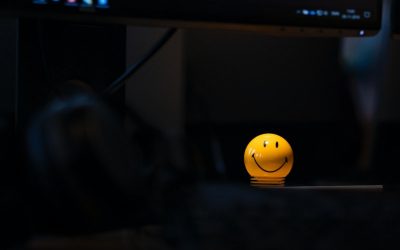Clinical depression is a strikingly common mental health problem, experienced by almost one in three of us at some point in our lives. For some the problem becomes chronic, involving repeated episodes of black mood between stretches of normality. Such individuals often learn to recognise the signs of an impending episode; however, for those who are experiencing their first (and hopefully only) episode, it can be extremely difficult pinpointing when a normal blue mood has become poisonously black.
Moods change in both colour and texture, tone and vibrancy. This is a normal and healthy part of life and living; few people would want to live life through a single emotional filter. It is good to be happy when things are going well, or in love when we have found love; but it is also desirable to feel grief when we experience loss, or upset, anger and sorrow when such things are appropriate.
Because moods change naturally, it can be hard to spot when things have become problematic – especially because such black periods of deep depression don’t generally appear fully formed, but develop slowly from sadness, sorrow and anger which may have began as natural, healthy responses. In clinical depression, however, these moods can take on an intensity completely out of proportion with what may have originally triggered them; take on a life of their own seemingly detached from the mind of the afflicted individual.
As clinical depression develops, negative thoughts may become so insistent that they drown out all else. Positive comments from friends are reinterpreted as negative, or as evidence we are not being taken seriously. Pleasure begins to drain from previously enjoyable activities – until even sharing time with loved ones, or something as simple as enjoying a meal, become chores. Life becomes exhausting, irritating.
In its milder forms, clinical depression involves persistent gloom and pessimism, and difficulty interacting with others, or concentrating. But as it gets darker speech and even movement can become difficult, conversation impossible. These things happen slowly, and unfortunately as they happen it becomes harder to notice them – as depression also makes thinking sluggish. For these reasons, it’s important to catch symptoms as they first arise. More than a week of feeling unusually down – especially if there is no obvious reason, especially if moods seem to be getting slowly darker – is a sign that something is wrong.
Fortunately, talking therapies can be extremely effective in relieving depression and – just as important – preventing its return. Often, depressed people have disordered thought patterns or problematic ways of seeing the world. These can be either a cause or symptom of the depression – or both. Unpicking these in the safe space provided by a Psychologist allows a sufferer to ‘step back’ and reassess their understanding of the world.
Further, the Psychologists voice can provide a valuable alternative dialogue to that offered by the depression. Overbearing negative thoughts which can seem stuck on repeat are gently challenged, and a respite is offered from what can seem like an unbearable onslaught.
Just as clinical depression isn’t about normal low mood – it is healthy and wise to feel a full range of emotion – the treatment of clinical depression isn’t about creating an unrealistic sunny disposition. Clinical depression places a cruelly distorting lens over the eyes of the sufferer – by seeing a Psychologist who will try to help the patient remove that lens and see again the world as it truly is. If you want to get support with depression contact our psychologists for depression counselling Brisbane.

